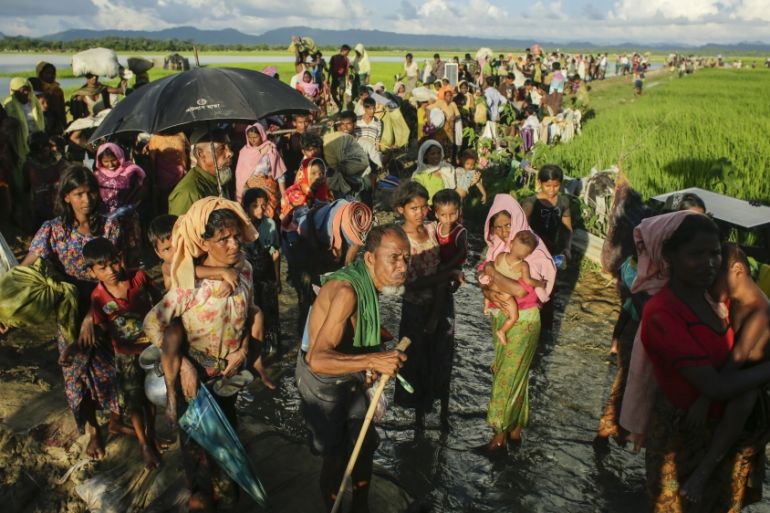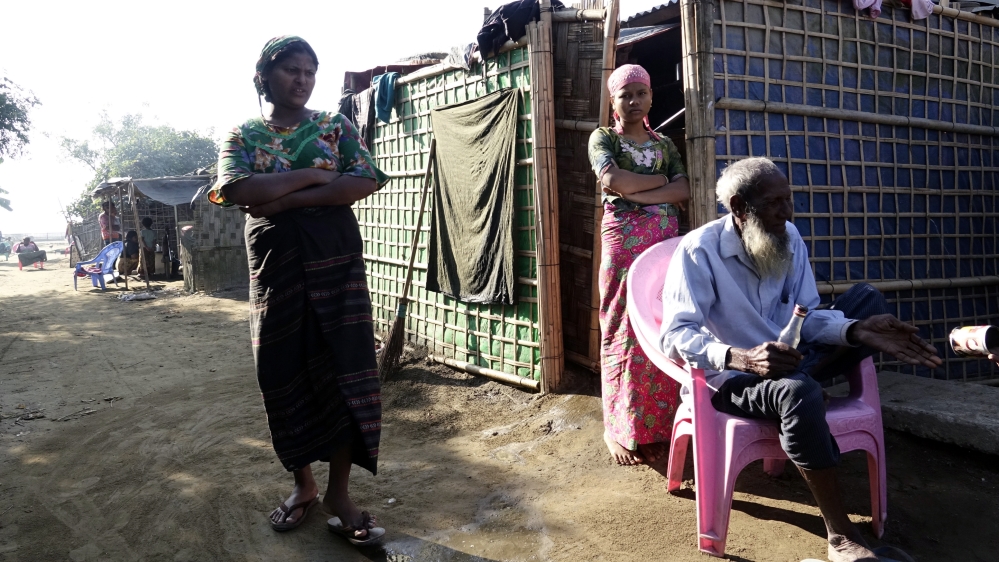UN fails to take action on order against Myanmar on Rohingya
Myanmar’s allies China and Vietnam block vote on a joint statement forcing EU member states to make separate report.

The UN Security Council on Tuesday discussed the International Court of Justice’s order that Myanmar do all it can to prevent genocide against the Rohingya Muslims, but failed to agree on a statement.
China, an ally of Myanmar, as well as Vietnam, which is a member of the regional Association of Southeast Nations (ASEAN) along with Myanmar, objected, diplomats said, speaking on condition of anonymity because it was a closed-door meeting.
Keep reading
list of 3 itemsMyanmar to release its Rohingya crackdown investigation results
Myanmar: Defending genocide at the ICJ
Instead, the European Union members of the council urged Myanmar in a joint statement to reporters afterwards to comply with the measures ordered by the UN’s top court, stressing that they were “compulsory under international law.”
France, Germany, Belgium and Estonia along with former council member Poland also urged Myanmar “to take credible action to bring to justice those responsible for human rights violations.”
“Myanmar must address the root causes of its conflicts, in Rakhine State, but also in Kachin and Shan States,” the EU members said.
|
|
“Accountability of perpetrators of human rights and humanitarian law violations is a necessary part of this process.”
Some 740,000 Rohingya fled to Bangladesh after Myanmar security forces launched a crackdown on the Muslim minority in August 2017 in response to an attack by a Rohingya armed group. More than one million Rohingya refugees are currently living in Bangladesh.
Thousands of Rohingya are suspected to have been killed in the crackdown which has been described by UN investigators as a genocide.
Refugees reported widespread rape and arson in Rakhine state by Myanmar’s military and local Buddhist militias.
Myanmar has long claimed the Rohingya are “Bengali” migrants from Bangladesh, even though their families have lived in the country for generations.

Nearly all Rohingya have been denied citizenship since 1982, effectively rendering them stateless and they are denied freedom of movement and other basic rights.
The EU countries said: “Myanmar must also create conditions for and facilitate a voluntary, safe, dignified and sustainable return of the Rohingya to Myanmar.”
They also reiterated the Security Council’s call for Myanmar to implement the recommendations of the Annan Commission which called for Myanmar to grant citizenship and ensure other rights to the Rohingya before the August 2017 attacks happened.
It also urged the government to promote investment and community-directed growth to alleviate poverty in Rakhine.